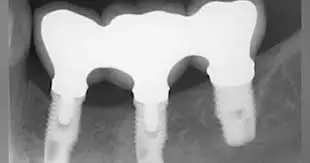- Home
- Medical news & Guidelines
- Anesthesiology
- Cardiology and CTVS
- Critical Care
- Dentistry
- Dermatology
- Diabetes and Endocrinology
- ENT
- Gastroenterology
- Medicine
- Nephrology
- Neurology
- Obstretics-Gynaecology
- Oncology
- Ophthalmology
- Orthopaedics
- Pediatrics-Neonatology
- Psychiatry
- Pulmonology
- Radiology
- Surgery
- Urology
- Laboratory Medicine
- Diet
- Nursing
- Paramedical
- Physiotherapy
- Health news
- Fact Check
- Bone Health Fact Check
- Brain Health Fact Check
- Cancer Related Fact Check
- Child Care Fact Check
- Dental and oral health fact check
- Diabetes and metabolic health fact check
- Diet and Nutrition Fact Check
- Eye and ENT Care Fact Check
- Fitness fact check
- Gut health fact check
- Heart health fact check
- Kidney health fact check
- Medical education fact check
- Men's health fact check
- Respiratory fact check
- Skin and hair care fact check
- Vaccine and Immunization fact check
- Women's health fact check
- AYUSH
- State News
- Andaman and Nicobar Islands
- Andhra Pradesh
- Arunachal Pradesh
- Assam
- Bihar
- Chandigarh
- Chattisgarh
- Dadra and Nagar Haveli
- Daman and Diu
- Delhi
- Goa
- Gujarat
- Haryana
- Himachal Pradesh
- Jammu & Kashmir
- Jharkhand
- Karnataka
- Kerala
- Ladakh
- Lakshadweep
- Madhya Pradesh
- Maharashtra
- Manipur
- Meghalaya
- Mizoram
- Nagaland
- Odisha
- Puducherry
- Punjab
- Rajasthan
- Sikkim
- Tamil Nadu
- Telangana
- Tripura
- Uttar Pradesh
- Uttrakhand
- West Bengal
- Medical Education
- Industry
Splinting may improve mechanical complications but fails to impact biological complications in posterior adjacent implants: Study

Splinting may improve mechanical complications but fails to impact biological complications in posterior adjacent implants suggests a new study published in the Journal of Prosthethic Dentistry.
While rehabilitation with implant-supported crowns in the posterior region is widely practiced, guidance on clinical considerations when choosing between splinted or nonsplinted implant-supported crowns is limited. The purpose of this systematic review with meta-analysis was to assess whether adjacent implants with internal connections in the posterior region should be treated with splinted or nonsplinted crowns. The systematic review was registered on the prospective register of systematic reviews (PROSPERO) under the code, CRD42021248525. Two authors searched 4 electronic databases (PubMed, Cochrane Library, Scopus, and Web of Science) independently for articles published up to December 2023. Additionally, a hand search was conducted in the nonpeer-reviewed literature and the reference lists of included articles. Only clinical studies comparing splinted and nonsplinted hexagonal or conical internal connection adjacent implants in the posterior region were considered.
A single-arm meta-analysis was conducted using RevMan. Risk of bias and quality were assessed using the Cochrane Collaboration’s Tool for Assessing Risk and the Newcastle-Ottawa scale. Results: Qualitative synthesis included 17 studies, and quantitative synthesis involved 13 studies. A total of 2085 implants (1244 splinted and 841 nonsplinted) were inserted in 1027 participants, with observation times ranging from 5 months to 16 years. Thirteen studies related the type of crown retention (cemented or screw-retained). Only 2 studies related annual bone loss results considering the type of crown retention, but whether they were splinted or nonsplinted crowns and significant differences were not specified. The meta-analysis revealed no statistical differences between splinted and nonsplinted implants for biological complications (P=.95, I2=0%). However, the nonsplinted implants exhibited significantly more mechanical complications than the splinted implants (P<.001, I2=1%, RR 0.37; 95% IC [0.26–0.54]). The studies included demonstrated a low risk of bias and were of good quality. Splinting was not found to affect the incidence of biological complications in posterior adjacent implants. However, more mechanical complications occurred in nonsplinted crowns than splinted ones.
Reference:
Pascoal ALB, Paiva KRG, Marinho LCN, Bezerra ADS, Calderon PDS. Impact of splinting implant-supported crowns on the performance of adjacent posterior implants: A systematic review and meta-analysis. J Prosthet Dent. 2024 Jul 1:S0022-3913(24)00373-1. doi: 10.1016/j.prosdent.2024.05.020. Epub ahead of print. PMID: 38955598.
Dr. Shravani Dali has completed her BDS from Pravara institute of medical sciences, loni. Following which she extensively worked in the healthcare sector for 2+ years. She has been actively involved in writing blogs in field of health and wellness. Currently she is pursuing her Masters of public health-health administration from Tata institute of social sciences. She can be contacted at editorial@medicaldialogues.in.
Dr Kamal Kant Kohli-MBBS, DTCD- a chest specialist with more than 30 years of practice and a flair for writing clinical articles, Dr Kamal Kant Kohli joined Medical Dialogues as a Chief Editor of Medical News. Besides writing articles, as an editor, he proofreads and verifies all the medical content published on Medical Dialogues including those coming from journals, studies,medical conferences,guidelines etc. Email: drkohli@medicaldialogues.in. Contact no. 011-43720751


